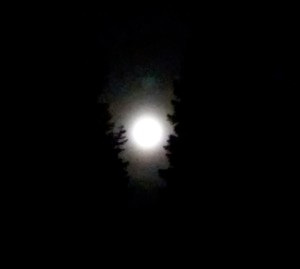
– Photo by Jan Ketchel
What distinguishes us from our animal co-inhabitants on this planet is ego. Animals live and limit their lives through their neatly defined instincts, which tell them when it’s time to eat, procreate, and defend, and when it’s time to turn off those instinctive drives. Animals don’t overeat, overpopulate, or over defend.
In contrast, the human animal, burdened with the added instinct of ego, must contend with the ego’s instinct to exert its power over the other basic instincts, as well as obtain a high level of validation from others as to its value, lovability, and importance.
Being the newest instinct on the evolutionary block, ego suffers from a basic immaturity in self-regulation and a deep insecurity as to its true worth as it takes up its place among the older, more well-established instincts housed in the human body.
The ego longs to feel special in an effort to override its deep uncertainty over its ability to manage the personality, the body, and the overall direction of its human life. Its insatiable need for validation draws it to seek constant attention from the world to assure it of its worth and desirability.
In fact, what we call love, co-opted by ego, is often an attempt to fill this deep hole of insecurity with a sense of specialness mirrored through the attention obtained through a partner. In fact, ego considers it its inalienable, birth-given right to feel special. The ego’s litmus test for true love is the ability of another to make it feel special.
Often the ego gives with the hidden motive of being validated for its “selflessness,” as well as to be given to in return. Carlos Castaneda never tired of pointing out this merchant mentality underlying our definition of love. He challenged us to consider that true love was a blank check, given not from a place of codependency but from a purely loving place, no strings attached.
Robert Monroe defined this refinement of love as Super Love (SL). He writes: “SL is a continuous radiation, totally nondependent upon like reception or any other form of return whatsoever. SL is.”

– Photo by Jan Ketchel
Monroe learned, during his many explorations of life beyond the body, that SL is an energy that exists throughout the dimensions, beyond life in this world.
However, life in this world offers one of the best places to access and refine SL, through the experiential evolutionary learning opportunities available through our many incarnations in this world.
The raw material of Super Love is to be found in the nurturing, sexual, romantic, and dependent relationships we long for and experience in our many lives and roles in this world.
The utter necessity for emotional attachment to begin life and to thrive in this world, coupled with the ego’s long path to maturity as it grapples with its identity and value, causes it to grasp for love with its brand of specialness for many lifetimes.
Ultimately, the insatiability of its quest and the emptiness of its fulfillment set the stage for the ego to come clean and admit the difference between its neediness and true Super Love.
Once this is realized, the ego it also ready to realize that the latent energy of SL has been veiled behind its quest for specialness all along. Ego comes to understand that attachment is really an attempt to solve its insecurities and that being special has really been all about assuaging those insecurities.
Once ego is ready to give up its ventures in specialness it gains access to the radiance of Super Love.

– Art & Photo by Jan Ketchel
Super Love is totally detached from specialness and reciprocity. Super Love is. It radiates. It isn’t offended. It encompasses all.
We all have it. We all are it. And if we are here, we are also deeply engaged in the process of refining it.
SL,
Chuck
Quote from Robert Monroe, Far Journeys, p. 257.
